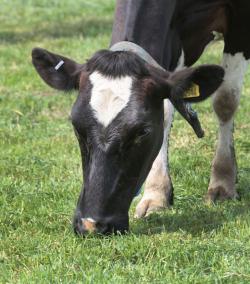Investigation of the effect of contrasting dairy production systems in West Wales on the profile of milk fatty acids (especially omega-3 and 6)
The human body isn’t capable of producing omega-6 and omega-3 fatty acids. These are termed “essential fatty acids” as they have to be consumed from our diet. Unfortunately, most of us aren’t getting enough omega-3 and tend to have much higher levels of omega-6 in our diets. This imbalance of fatty acids can negatively affect our health. Increasing our omega-3 intake and getting the right balance of the two is vital and is found to have multiple health benefits to both our mind and body.
Twenty dairy farmers from South West Wales have come together to investigate whether milk from production systems in west Wales already contain valuable levels of omega-3. They aim to identify which pasture-based management practices produce the highest levels of the fatty acid. The results could give dairy farmers the opportunity to consider forage-based options as a way of producing milk with enhanced levels of omega-3. This could provide a marketing advantage without going to the extra cost of adding supplements to their forage. The group supply their milk to several different milk buyers and processors, including commodity liquid milk, premium organic liquid milk, cheese manufacturers and high value food ingredient manufacturers. All of these milk outlets could potentially take advantage of the project results by marketing the products for their high omega-3 content.
Four dairy production systems will be examined:
- Conventional Housed Winter/Grazing Summer
- Herds housed all year round
- Organic herds
- Spring Block Calving

